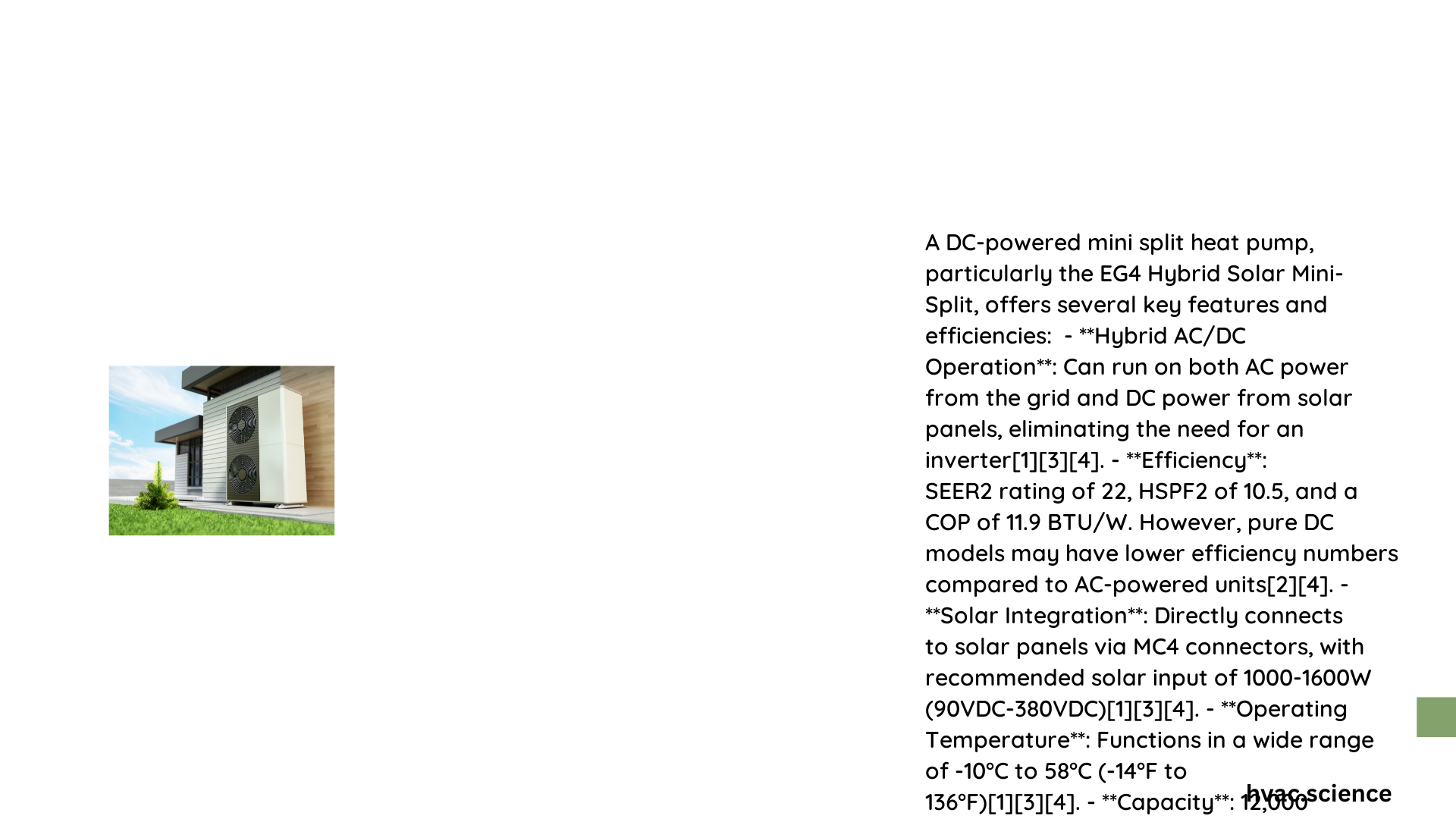DC powered mini split heat pumps represent an innovative solution for energy-conscious homeowners seeking flexible and efficient climate control. These advanced systems leverage direct current technology to provide precise temperature management, offering unique advantages in residential and small commercial spaces. Unlike traditional HVAC systems, DC powered mini split heat pumps can integrate seamlessly with renewable energy sources like solar panels, making them an attractive option for sustainable home infrastructure.
What Makes DC Powered Mini Split Heat Pumps Unique?
DC powered mini split heat pumps distinguish themselves through several critical technological characteristics:
How Do DC Mini Split Heat Pumps Operate?
DC mini split heat pumps utilize direct current electricity, enabling more precise and efficient energy conversion compared to traditional AC systems. The core operational mechanism involves:
- Variable Speed Compressor: Allows dynamic adjustment of cooling and heating output
- Inverter Technology: Enables precise temperature control with minimal energy waste
- Direct Current Flow: Reduces energy conversion losses
What Are the Efficiency Ratings of DC Mini Split Heat Pumps?
| Efficiency Metric | Typical DC Mini Split Range |
|---|---|
| SEER Rating | 15-18 |
| COP (Coefficient of Performance) | 3.0-4.2 |
| Energy Consumption | 800-1500 watts |
Why Choose DC Powered Mini Split Heat Pumps?
Homeowners and energy enthusiasts are increasingly attracted to DC powered mini split heat pumps for several compelling reasons:
- Enhanced Energy Efficiency
- Lower energy conversion losses
- Compatible with renewable energy systems
-
Reduced electricity consumption
-
Flexible Installation
- Compact design
- Minimal ductwork requirements
-
Adaptable to various architectural configurations
-
Quiet Operation
- Advanced inverter technology reduces operational noise
- Sound levels typically range between 22-45 decibels
What Are the Installation Considerations?
Successful DC powered mini split heat pump installation requires careful planning:
- Power Source Compatibility
- Verify DC voltage requirements
- Ensure proper electrical infrastructure
-
Consider integration with solar or battery systems
-
Professional Assessment
- Conduct comprehensive home energy audit
- Evaluate existing electrical system
- Determine optimal unit placement
How Much Can You Save with DC Mini Split Heat Pumps?
Potential energy savings vary, but typical scenarios demonstrate:
- Annual Energy Cost Reduction: 30-50%
- Payback Period: 5-8 years
- Long-Term Savings: Significant reduction in utility expenses
What Are the Potential Limitations?
While promising, DC powered mini split heat pumps have some constraints:
- Higher upfront installation costs
- Limited market availability
- Lower efficiency compared to high-end AC models
Conclusion

DC powered mini split heat pumps represent an evolving technology with substantial potential for energy-efficient home climate control. As renewable energy integration becomes increasingly important, these systems offer a forward-thinking solution for environmentally conscious consumers.
